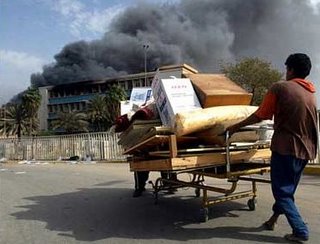-Gales-Ck.gif) "I have seen a lot of scenery in my life, but I have seen nothing more tempting as a home for man than this Oregon country. . . . You have a basis here for civilization on its highest scale, and I am going to ask you a question which you may not like. Are you good enough to have this country in your possession? Have you got enough intelligence, imagination and cooperation among you to make the best use of these opportunities?
"I have seen a lot of scenery in my life, but I have seen nothing more tempting as a home for man than this Oregon country. . . . You have a basis here for civilization on its highest scale, and I am going to ask you a question which you may not like. Are you good enough to have this country in your possession? Have you got enough intelligence, imagination and cooperation among you to make the best use of these opportunities? "
Lewis Mumford
Speech to The City Club of Portland, Oregon (1938 )
Few areas on the planet are as amenable to the growth of lush coniferous forests as the Oregon Coast Range and Cascades. Abundant rainfall (sometimes exceeding 200 inches annually) and deep winter snowpacks nourish old-growth forests with softwood trees that often exceed 200 feet in height and ten feet in diameter. The dominant species are Douglas fir and, near the coast, Sitka spruce, although western hemlock and western redcedar are very common. In North America, only the redwood forests (also found in southwestern Oregon) support larger trees.
If the Oregon Cascades and Coast Range have a tragic flaw, it can be found in a geology and summer climate that make them relatively easy to log compared to the precipitous North Cascades or Olympics of Washington State. National forests managed by the U.S. Forest Service—which, revealingly, is an agency of the Department of Agriculture—encompass most of the Cascades, while forest ownership in the Coast Range is more complex. Vast areas of the Coast Range are owned by large timber corporations, the state of Oregon, the U.S. Forest Service and U.S. Bureau of Land Management.
Oregon has long been the leading timber producer in the U.S., with its timber "harvests” (1) reaching their historic peaks during the sixties and seventies. The culminating years were 1968 and 1972, each with harvests of more than 9.7 billion (2) board-feet (BF). Extensive logging continued through the Reagan years at nearly the same levels, leaving a vast checkerboard of grotesque, reddish-brown clearcuts across the landscapes of Oregon, Washington and other western states.
Clearcuts strip the living vegetation from a mountainside, baring the mineral soil and subjecting it to erosion. Heavy equipment compresses the topsoil, making it more difficult for plants to reclaim the slopes. Water quality is damaged by silt and landslides. Air quality is impaired by the practice of slash-burning the woody debris that remains on the ground after clearcutting. The result is a visual nightmare that degrades and fragments the mountainous landscape for decades. (In the official literature, this is often described as a "mosaic of forest conditions," as if it were a work of art.)
During the nineties, timber production declined markedly for a variety of reasons, including lower prices, intense international competition (especially with Canada) and endangered-species litigation related to the spotted owl and marbeled murrelet. By 2001, production in Oregon fell to 3.4 billion board-feet, with predictable effects on mills and timber-dependent rural communities across the state.
But, with friends in the White House, Congress and the state legislature, the timber corporations have been recovering nicely. Oregon’s total harvest reached 4.5 billion board-feet in 2004, and harvests on corporate timberlands have increased impressively (see next photo). Federal forest lands have also increased production.
The Tillamook State Forest
The Tillamook State Forest of northwest Oregon was largely spared from the ravages of industrial logging for the seven decades that followed the gargantuan Tillamook Burn, still one of largest forest fires in North American history. The Burn was started during the summer of 1933 by an illegal logging operation and destroyed 355,000 acres of old-growth forest.
Subsequent fires, through 1951, further devastated the area and its topsoil. About 1.5 million trees (7.5 million BF) were salvaged by commercial loggers in the Burn. The state took over the private timber holdings in the Burn and eventually created the Tillamook State Forest, then began a massive replanting effort that continued until 1973. The forest has now “matured” to the extent that it considered ready for another round of harvests, though many of the trees would be considered mere “matchsticks” by the standards of forty years ago.
Despite official rhetoic about "structured forest management," not one square inch of the Tillamook is designated as protected wilderness or wildlife habitat. But there are 200 miles of "motorized trails" where off-road vehicles are permitted to run amok. And, under Oregon law, the highest priority of the Tillamook and other state forests is to produce logs and revenue.
Ballot Measure 34
The fate of the Tillamook's 550 square miles of forestlands has been the subject of much controversy as plans for its management, with a heavy emphasis on timber production, have been developed by the Oregon Department of Forestry. In this state, though, Big Timber is the 800-pound gorilla whose dominance is assumed rather than debated. Politicians at every level, and from both major parties, have historically been reluctant to take on a major source of influence, revenue and campaign contributions. Oregon counties rely on timber revenues from state and federal forests for a significant portion of their budgets (3). Professional and academic foresters are also dependent for their livelihoods on timber production, directly or indirectly, so they rarely depart from the corporate line on questions of “multiple use” and “integrated forest management.”
In 2004, citizen groups attempted to take on Big Timber and its political allies by placing Measure 34 on the statewide ballot. If adopted, it would have de-emphasized timber production and promoted other values for the Tillamook such as forest restoration, recreation, wildlife habitat and water quality. Proponents argued that the state Forestry Department’s current plan would cut up to 85% of the trees in the Tillamook within twenty-five years. Big Timber responded with a predictable media onslaught of disinformation, leaving no doubt about its intention to crush BM 34 (4). And so it did, by a statewide margin of 61-39% (with nearly 4-1 opposed in Tillamook County). The measure lost handily in every county except Multnomah (Portland).
Even at the allegedly liberal University of Oregon, the columnists for the student newspaper unanimously opposed BM 34. One argument, familiar throughout Oregon, went like this: “I trust the Oregon Department of Forestry knows more about what they are doing than I do, so I will vote to leave management in their hands” [revealing an attitude towards authority that also made the Iraq war possible.]
Since the defeat of BM 34, the Tillamook has been off the political radar screen. Not surprisingly, though, the ripening forest hasn't been forgotten by the corporate opponents of that measure.
The Future of the Tillamook
So now it’s back to business as usual in Oregon’s forests, including the Tillamook. Private timber companies like Stimson Lumber have recently inflicted massive clearcuts on the margins of the state forest (see photos). Total timber harvests in Washington County increased from 74 million BF in 1986 to 178 million BF by 2004. And there’s growing evidence of similar “active management” inside the state forest as well: production has increased from just 1.2 million BF in 1986 to 28.3 million BF in 2004.
In twenty-five years, will the Tillamook look like the rest of Oregon’s ravaged forests (other than the snippets preserved in designated wilderness areas)? Will the state legislature or another group of citizens attempt to redefine the goals for its future managment? As Lewis Mumford asked: "Are you good enough to have this country in your possession?" It’s too soon to tell, but a survey of Oregon's forestlands (with some notable exceptions) offers little reason for hope.
NOTES
(1) Industrial forestry has always been permeated with euphemisms, from the currently popular “Healthy Forests Act” (read: more logging of old growth) to “intensive management” (clearcutting) to “multiple use” (clearcutting). “Harvests” suggests that trees are just another crop, another renewable resource like corn, that can simply be replanted after the land is stripped of vegetation down to the topsoil. Anyone who believes that this comparison is valid should examine the total wasteland of a clearcut one year after it’s done. Clearcuts are prominent features of a landscape for decades, not just a few months.
(2) Unless otherwise referenced, the Oregon Department of Forestry has been the primary source for this posting, especially its 2005 publication "Oregon’s Timber Harvests: 1849-2004" and its website.
(3) The Tillamook State Forest already generated $15 million in revenues for Washington and Tillamook counties in 1997, a year of relatively low harvests. Revenues will increase proportionately as the area is logged.
(4) The "no" campaign
outspent the proponents by a factor of about 7-1, with the vast majority of the funding (well over $2 million) coming from such Big Timber luminaries as Weyerhaeuser, Boise Cascade, Stimson, RSG, the Oregon Forest Industry Council and Hampton Lumber.
GRAPHICS: The first photo (by the author) shows a recent clearcut on private lands in Washington County right next to the boundary of the Tillamook State Forest.
The aerial photo, from Google Earth, shows a portion of the Coast Range to the northwest of where I live.
The image is an overlay of two series of photos, including one set obviously taken when there was snow on the ground.
If you question whether this scene is typical, see for yourself on Google Earth by “flying” north and south over the
Coast Range and Cascades at any “altitude.”
You’ll see that much of
Washington has been as devastated by industrial logging as
Oregon.



-Gales-Ck.gif)













